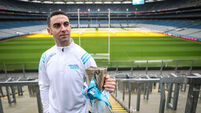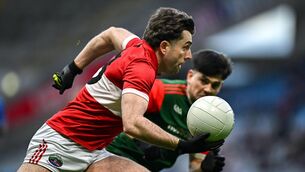Leaving it all behind
HE WILL miss it, but not much. No tearful farewells, as the grizzled old coach takes his stopwatch and memories home one last time.
When Donal O’Grady took his leave last Monday after two years in charge of the county’s hurlers, his departure was the essence of timing and simplicity. And without ambivalence.














